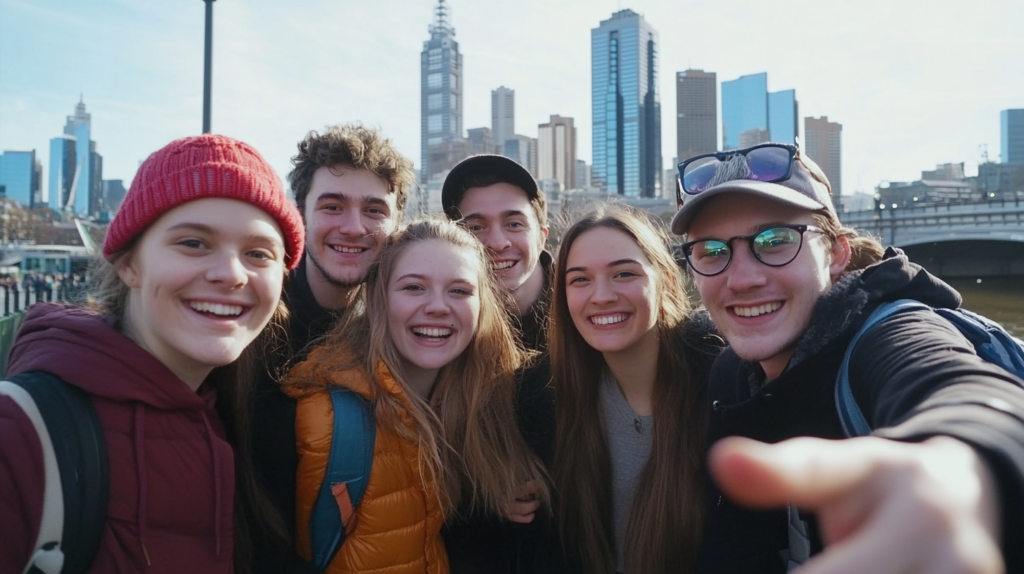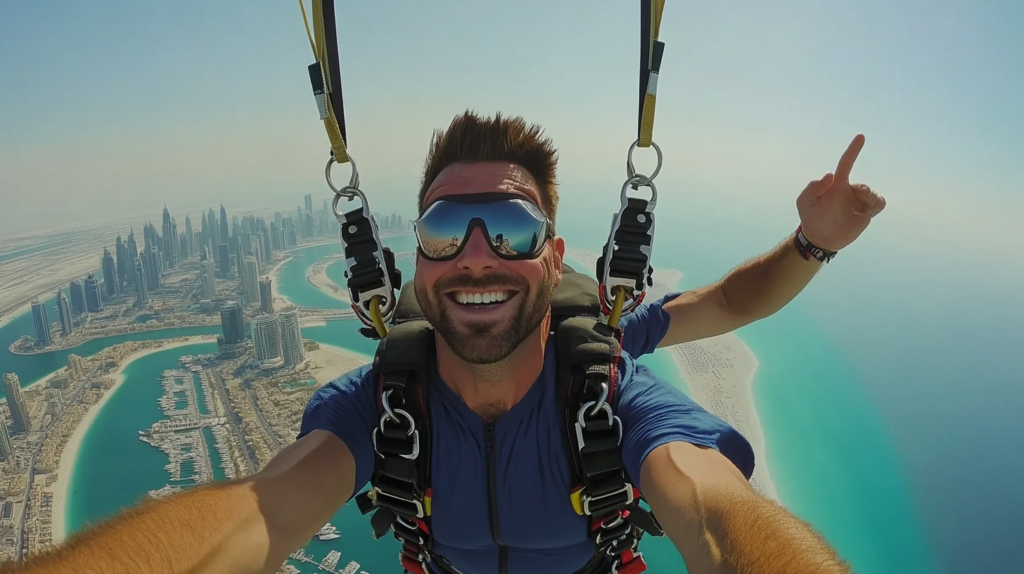The 2025 travel industry is set to witness a profound transformation driven by shifting consumer expectations, technological advancements, and global environmental consciousness. It seems that the travel and tourism industry is starting to level-out again and travel in 2024 has been good, with the global tourism sector recovering from the COVID-19 pandemic and international tourism receipts growing.
In the first nine months of 2024, 1.1 billion tourists traveled internationally, which is 98% of pre-pandemic levels. The UN Tourism Barometer expects a full recovery by the end of the year (we’re nearly there but don’t have all the data just yet). Most destinations with available data have seen double-digit growth in international tourism receipts compared to 2019 and The World Travel & Tourism Council (WTTC) projects that the travel and tourism sector will contribute $11.1 trillion to the global economy by the end of 2024, an all-time high.
Did you know? You can now download our latest Insight Report for the travel industry, “Digital Maturity in the Hotel Industry” here.
This article shares our view on what 2025 will bring now that the Covid-curveball has been alleviated. So, leveraging data from comprehensive reports by leading organisations like Hilton, Expedia, and Euronews Travel, we explore emerging trends shaping tourism in 2025 and provide actionable insights for businesses to adapt and thrive.
Reports such as Euronews Travel Trend Report 2025 emphasis that today’s travellers are prioritising sustainable tourism more than ever. Zurab Pololikashvili, Secretary-General of UN Tourism, notes a significant rise in demand for nature-based tourism, rural escapades, and gastronomy-focused experiences.
Meanwhile, Hilton’s 2025 Trends Report identifies the rise of “Grounding Getaways,” where travellers actively seek destinations that align with their values of environmental conservation and cultural respect.
According to Lemongrass Annual Travel Trend Report 2025, tourists are increasingly participating in community-driven projects, from agri-tourism to cultural preservation, enabling them to contribute positively to the destinations they visit.
Strategic Takeaway: Invest in storytelling that highlights your sustainability initiatives. Collaborate with local communities to offer immersive and regenerative travel packages that create lasting impact and resonate with value-driven travellers.

AI continues to redefine the travel experience. Google’s NextGen Travellers and Destinations report highlights how generative AI tools are streamlining every phase of the traveller’s journey, from planning to in-destination personalisation. Hilton echoes this with its insights on AI-enhanced booking experiences, noting that 76% of travellers prefer accommodations offering tech-integrated options to enhance their stays.
We’ve seen some phenomenal implementation of AI, particularly in delivering a more concierge-style service to users and potential customers online – you could feasibly see customers chatting to an AI chatbot in the same way as they would a high-street travel agent, maximising likelihood of conversion through needs analysis questioning leading to more tailored travel recommendations.
Flexibility is the new norm. Accor’s New Quality of Time Report 2024 notes a surge in demand for spaces that balance productivity and relaxation. Similarly, Hilton’s report highlights the trend of “MeMooners,” where solo travellers combine professional commitments with rejuvenating retreats. It is possible now for many professionals to work from, well, anywhere with an internet connection. Many of the new generation of young professionals are taking this opportunity to travel to new destinations and work remotely whilst absorbing new cultures and enjoying better weather and other localised benefits.
Strategic Takeaway: Develop user-friendly platforms powered by AI to offer hyper-personalised travel itineraries. Highlight flexible packages catering to remote workers, integrating high-speed connectivity and co-working spaces.

Travel is increasingly becoming a family affair. Reports like Hilton’s 2025 Trends highlight how multi-generational travel is growing, with groups seeking destinations that cater to diverse needs. From young parents travelling with their own children and their parents on the same multi-generational vacation, to siblings and cousins choosing to travel together to far-flung locations, this trend is a multiplier effect on bookings.
Design Hotels’ Further Forecast 2025 introduces the concept of “Community Capital,” focusing on fostering connections through shared experiences and communal activities. Gen Z, in particular, seeks travel experiences that emphasise social ties and meaningful interactions. There are numerous companies now offering solo travellers the chance to be ‘matched’ with other like-minded individuals seeking similar experiences; whilst group gap-year or sabbatical packages are also becoming lucrative.
Strategic Takeaway: Build marketing campaigns that celebrate the diversity of travel groups. Highlight facilities like shared spaces or group activities that cater to both family dynamics and social connections.

Expedia’s Unpack ’25 report highlights a surge in interest for “Detour Destinations,” where travellers seek quieter, less crowded locations that still offer rich cultural or natural experiences. Rising destinations such as Krabi in Thailand and Brescia in Italy exemplify this trend, drawing attention as alternatives to their more tourist-heavy counterparts like Bangkok or Milan.
These locations are gaining traction due to their authenticity, unique local attractions, and the promise of a more immersive experience. According to the report, searches for these under-the-radar spots have increased by over 60% year-over-year, reflecting a broader shift towards conscious travel that avoids the pitfalls of overtourism. This trend aligns with the growing traveller preference for personalised and meaningful journeys, where avoiding the typical crowds enhances the overall experience.
Lemongrass Travel Trend Report notes the growing popularity of “Cool-Cations,” where travellers escape to destinations with cooler climates to mitigate the effects of rising global temperatures. It’s true – some people don’t actually go on holiday to just lay there cooking in the sun, some travellers just want to go somewhere with normal/pleasant temperatures where they can explore new scenery and cultures.
Strategic Takeaway: Use geo-targeted campaigns to highlight emerging and underexplored destinations. Collaborate with regional authorities to promote lesser-known locales as hidden gems.

Hilton’s Trends Report 2025 reveals a notable shift in traveller preferences towards outdoor and adventure-focused experiences. According to the report, 28% of travellers now prioritise activities that immerse them in nature, such as hiking, camping, or exploring remote landscapes. Additionally, 20% are actively seeking high-adrenaline pursuits like zip-lining, rock climbing, or white-water rafting, reflecting a growing appetite for thrill and excitement.
These findings indicate a broader trend where travellers are looking to disconnect from daily routines and reconnect with nature or their adventurous side. The report also highlights that destinations offering unique outdoor excursions (paired with well-designed accommodations) are seeing significant interest, underlining the importance of combining adventure with comfort. This aligns with the desire for transformative travel experiences that challenge, inspire, and leave a lasting impact on travellers.
Reports like Accor’s New Quality of Time emphasise a growing shift among travellers towards wellness-focused holidays, where mental, emotional, and physical well-being take centre stage. This trend is driven by an increasing awareness of the need to counteract the fast-paced nature of modern life. Travellers are seeking destinations and experiences that help them disconnect, recharge, and find balance. Wellness retreats offering yoga, meditation, spa therapies, and tailored fitness programs are seeing a surge in demand, as are nature-based escapes that promote mindfulness and relaxation.
The report also highlights a preference for holistic experiences that integrate cultural and environmental elements, such as forest bathing or farm-to-table culinary workshops, allowing travellers to rejuvenate while feeling connected to the local ethos. This wellness-centric approach is not only reshaping travel preferences but also inspiring the hospitality industry to innovate in creating serene, restorative environments.
Strategic Takeaway: Partner with adventure and wellness brands to curate bespoke packages that appeal to thrill-seekers and health-conscious travellers alike.

IBIS x Globetrender’s Go Get It Report reveals a significant surge in last-minute travel bookings, particularly among Gen Z and Millennials. This shift is largely driven by the flexibility enabled by mobile technology and digital platforms. With the rise of last-minute deal sites, AI-driven travel apps, and on-demand services, younger travellers are embracing spontaneous travel plans, booking trips just days or even hours before departure.
These tech-savvy generations are taking advantage of the real-time availability of flights, accommodations, and activities, allowing them to make decisions on the fly and adapt to changing schedules. The flexibility of mobile apps, which offer instant booking and price alerts, is making it easier for travellers to capitalise on opportunities, making spontaneity a key feature of travel in 2025. As a result, there is a noticeable shift from long-term planning to more fluid, dynamic approaches to travel.
Travellers are increasingly choosing to book directly with providers, bypassing third-party platforms, in a move driven by both cost savings and the desire for more personalised experiences. According to Expedia’s Unpack ’25 Report, there is a marked preference for direct bookings, with travellers seeking better rates, greater flexibility, and more tailored experiences that third-party sites often cannot offer. A key driver of this shift is the growing appeal of loyalty programs that reward customers with personalized benefits, such as custom itineraries, exclusive access, or unique local experiences.
The report highlights that 76% of travellers now prefer loyalty programs that offer experiences instead of traditional points-based rewards. This shift towards direct booking is also supported by the increasing integration of AI and customer data to create hyper-personalised experiences, allowing providers to directly engage customers with relevant offers and content, thus building stronger, long-term relationships.
Strategic Takeaway: Simplify the direct booking process through mobile-friendly platforms. Offer loyalty programs that provide experiential rewards rather than generic incentives.
The travel trends for 2025 emphasise a shift toward purpose-driven exploration, technological enhancement, and greater flexibility. Businesses that adapt to these changes stand to gain a competitive advantage in an industry where consumer expectations are higher than ever. Some key take-aways for 2025 include:
By adopting these strategies, travel brands can align with the aspirations of the modern traveller, ensuring relevance and resilience in the years ahead.
If you’re looking to leverage these trends within your travel marketing in 2025, consider partnering with a reputable digital agency with travel experience, like Remarkable. Get in touch with our team to discuss your 2025 plans today.
_______________
This article referenced a significant number of 2025 trend reports, with considerable Travel-focused insights coming from: